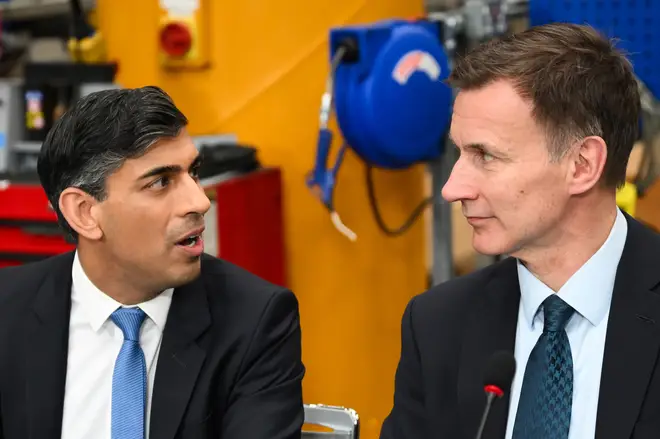
Iain Dale 7pm - 10pm
4 March 2024, 08:25

Brits 'better off' now than they were in 2010, minister insists
Brits earning low or average incomes in the UK are ‘better off’ now than they were in 2010, a treasury minister has told LBC.
Speaking to LBC's Nick Ferrari at Breakfast, Bim Afolami said: "If you look at the record since 2010, people on the lowest incomes - they are 30% better off, people on minimum wage, if they are working full time...are better off in real terms."
"So, you know, the picture is not uniformly bad, particularly for average people on average incomes, but of course we need to improve the picture."
A perplexed Nick then questioned Mr Afolami: "So my listeners on average incomes are better off than they were 14 years ago?"
"What I'm saying is, in terms of real household incomes for people who are on average incomes is 12% up on what it was in 2010," the treasury minister continued.
Brits on the lowest incomes are also "much better off" than they were in 2010, Mr Afolami added.

Watch Again: Nick Ferrari is joined by Economic Secretary to the Treasury Bim Afolami | 04/03/24
It comes after a report from the Joseph Rowntree Foundation (JRF) found that households’ average post-tax earnings at the start of this year were £2,400 a year lower than at the start of 2021, The Guardian reports.
Read More: Chancellor considers 'further cuts to public spending' as he aims boost Budget tax giveaway
Read More: Hunt's AI revolution: Budget to add £800m of new tech to slash NHS backlog and free up police time
Meanwhile, economists at the JRF have predicted that the Budget, set to be unveiled by Jeremy Hunt on Wednesday, could leave working families £1,900 a year worse off in 2029 compared with 2021.
Rumours are swirling about the measures set to be introduced by Mr Hunt, who told LBC on Sunday that his Spring Budget, the last possible one a Tory government can call before the election, will be "prudent and responsible".

Mr Hunt played down the possibility of bringing in wider tax cuts, particularly income tax, though he is reportedly considering a 2p national insurance tax cut.
Mr Hunt and the Prime Minister Rishi Sunak are said to be in favour of slashing national insurance rather than income tax due to the fact that it only benefits workers.

Chancellor Jeremy Hunt joins Matthew Wright ahead of the Budget
But there are concerns about how Mr Hunt would fund such a tax cut, with economists warning it may need to be reversed after the election.
One way Mr Hunt is reportedly considering raising cash to fund national insurance is by introducing further cuts to public spending, as well as by abolishing the non-dom tax status - a key Labour pledge.